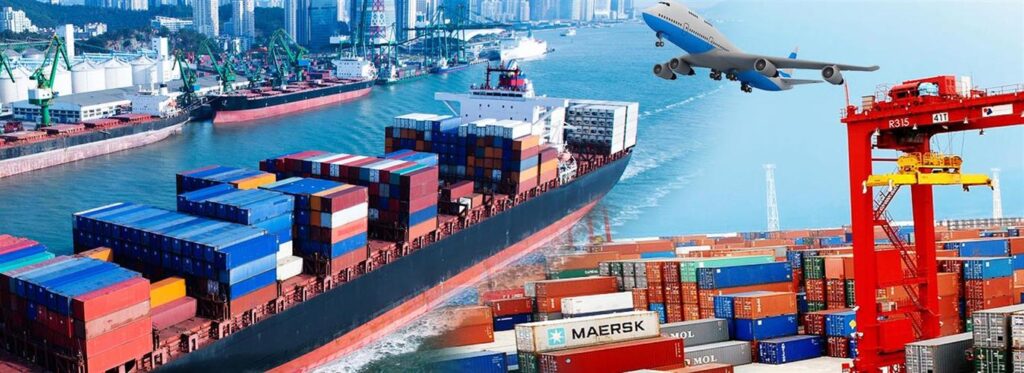- By TOP CHINA FREIGHT
- April 16, 2025
- Shipping
How to Choose a Shipping Incoterm to Argentina: A Complete Guide
When shipping goods from China to Argentina, understanding the different shipping incoterms is essential for a smooth and cost-effective transaction. Freight rates from China to Argentina can vary greatly depending on the terms you agree upon, the type of goods you are shipping, and whether you’re shipping bulk shipments or smaller items. In this post, we will explore how to choose the right shipping incoterm for your shipment, factors affecting freight rates from China to Argentina, and tips for China to Argentina bulk shipping.
1. What Are Incoterms and Why Are They Important?
Incoterms, short for International Commercial Terms, are a set of standard terms used in international trade to define the responsibilities of buyers and sellers in the delivery of goods. They help avoid confusion by clearly indicating who is responsible for paying for transportation, insurance, and other aspects of the shipping process.
When shipping goods from China to Argentina, choosing the correct incoterm can help clarify:
- Who handles customs clearance.
- Who pays for shipping costs.
- Who is responsible for risk and damage during transit.
2. Key Incoterms for Shipping to Argentina
The most common incoterms for shipments from China to Argentina include:
- FOB (Free On Board): This term means the seller is responsible for all costs and risks up until the goods are loaded onto the vessel at the port of departure in China. After that, the buyer takes over responsibility for freight rates and the risk of damage or loss during transit.
- CIF (Cost, Insurance, and Freight): The seller is responsible for shipping costs, insurance, and freight rates until the goods reach the port of destination in Argentina. However, the buyer assumes responsibility once the goods arrive in Argentina.
- DDP (Delivered Duty Paid): The seller is responsible for the entire shipping process, including freight rates and customs duties until the goods are delivered to the buyer’s address in Argentina.
When choosing an incoterm, consider your business needs and how much control you want over the shipment process.
3. How to Choose the Right Shipping Incoterm for Your Business
Choosing the best incoterm depends on your relationship with your shipping partner and how much responsibility you want to bear in the shipping process. If you want to take full control over the shipping, FOB may be your best option. However, if you prefer to minimize risk and complexity, CIF or DDP might be more appropriate for your shipment.
Consider these factors when selecting the right incoterm:
- Risk tolerance: If you’re not comfortable managing shipping risks, opt for terms like CIF or DDP.
- Cost structure: Ensure that you understand how freight rates from China to Argentina vary based on your chosen incoterm.
- Delivery expectations: Some businesses require precise delivery times, so understanding how different incoterms impact the shipping timeline is essential.
4. Freight Rates China to Argentina
Freight rates from China to Argentina are influenced by several factors, including:
- Incoterms: The chosen term can greatly affect the overall cost. For instance, under FOB, the buyer may pay for shipping and insurance, while under CIF, the seller may include these costs.
- Mode of Transport: Air freight is generally faster but more expensive, while sea freight is cost-effective for bulk shipments but takes longer.
- Shipment Size and Volume: Larger and heavier shipments usually incur higher freight rates.
- Seasonality: Shipping during peak seasons may result in higher rates due to increased demand.
Make sure to request quotes from multiple logistics providers to compare freight rates for the most cost-effective option.
5. China to Argentina Bulk Shipping
When dealing with China to Argentina bulk shipping, the process involves larger quantities of goods, often transported by sea freight. For bulk shipments, the cost per unit tends to be lower than for smaller shipments, but it’s essential to consider other factors such as:
- Customs regulations: Ensure you understand the customs duties and import taxes in Argentina.
- Port facilities: Choose a shipping company familiar with the ports in Argentina, as efficient port handling can save time and reduce costs.
- Packaging and handling: Bulk shipments may require special packaging to prevent damage during transport.

PAA (People Also Ask)
1. How do I choose the best incoterm for shipping from China to Argentina?
- To choose the best shipping incoterm from China to Argentina, consider your business needs, risk tolerance, and whether you want to handle freight rates and customs or prefer the seller to manage it. Popular options include FOB, CIF, and DDP.
2. What factors affect freight rates from China to Argentina?
- Several factors impact freight rates from China to Argentina, such as the incoterms chosen, the mode of transport (air or sea freight), the size of the shipment, and the seasonality of shipments.
3. How does China to Argentina bulk shipping work?
- China to Argentina bulk shipping typically involves large quantities of goods shipped by sea freight. It’s important to consider factors like customs clearance, port handling, and packaging to ensure smooth delivery.
4. What is the difference between FOB, CIF, and DDP for shipping to Argentina?
- FOB means the buyer assumes responsibility once goods are loaded onto the ship in China. CIF means the seller pays for shipping, insurance, and freight to Argentina, while DDP means the seller is responsible for all costs, including delivery to the buyer’s location in Argentina.
Tags :
- Argentina shipping logistics
- Bulk shipments China to Argentina
- China to Argentina bulk shipping
- FOB CIF DDP Argentina
- Freight rates China to Argentina
- How to choose a shipping incoterm to Argentina
- Incoterms shipping China to Argentina
- Shipping cost from China to Argentina
- Shipping from China to Argentina
